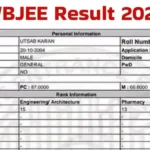Meghalaya police have arrested 21‑year‑old Raj Singh Kushwaha, alleged to be an employee and close associate of Sonam Raghuvanshi, in connection with the murder of Indore businessman Raja Raghuvanshi. Authorities suspect he may have helped plan or execute the crime.

Image Source:hindustantimes
Raj Kushwaha’s Arrest Deepens Intrigue in Honeymoon Murder Case
In a major breakthrough, Meghalaya police have arrested Raj Singh Kushwaha, 21, from Indore, as part of the ongoing investigation into the murder of businessman Raja Raghuvanshi. Police say Kushwaha was closely involved with Sonam Raghuvanshi—Raja’s wife—raising questions about the dynamics behind the alleged killing during their honeymoon.
According to official statements, Raj Kushwaha often communicated with Sonam before the couple traveled to Meghalaya. The two reportedly knew each other well—Kushwaha had worked under Sonam’s family, prompting speculation about his role in the crime’s planning or execution.
Here’s what is known so far:
-
Profile: Raj Singh Kushwaha, aged 21, from Indore.
-
Connection: Former employee of Sonam’s family business; allegedly in regular contact with her.
-
Arrest: Taken into custody by Meghalaya police along with three other suspects in early June.
-
Sonam’s Role: Investigators allege she orchestrated the murder, possibly with Kushwaha’s help.
Family members, particularly Raja’s brother, have demanded harsh punishment if the conspirators are found guilty. Raja’s mother has called for the death penalty.
-
Employee-Allegiance: Kushwaha was reportedly employed by Sonam’s family, fueling allegations of a deeper connection.
-
Frequent Communication: Phone records suggest regular conversations between Sonam and Kushwaha—central to police suspicion.
-
Conspiracy Allegations: Investigators believe Kushwaha may have helped hire or coordinate assailants.
-
Four Arrested: In addition to Kushwaha and Sonam (who surrendered in Uttar Pradesh), two other suspects have been taken into custody. The search continues for one remaining individual.
-
Multi-State Case: The crime spans Madhya Pradesh, Meghalaya, and Uttar Pradesh—highlighting its complex, cross-jurisdictional nature.














